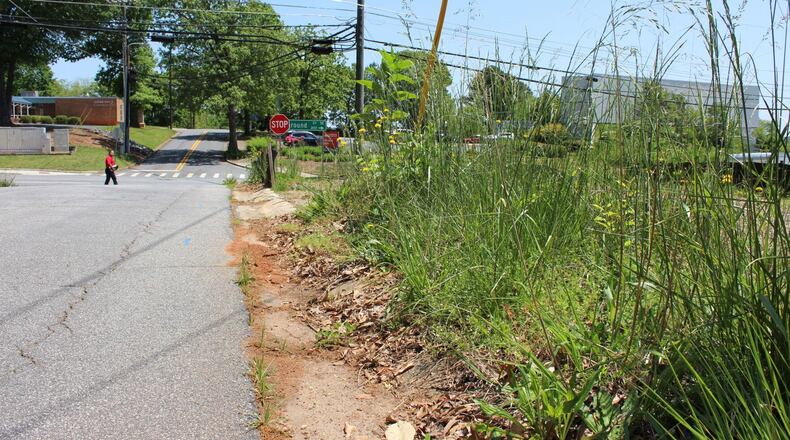MARIETTA — The Marietta City Council this week made further revisions to proposed changes for the city’s ordinances governing noise and grass height.
The council has been working on amendments to both ordinances in an effort to crack down on loud noises and overgrown yards — both proposals received similar tweaks at a Tuesday committee meeting and were advanced to the council’s May 9 work session.
The noise ordinance had been sent back to committee earlier this month due to proposed penalties that Councilman Joseph Goldstein and Mayor Steve “Thunder” Tumlin deemed too harsh.
Under the current ordinance, the first two violations of the noise ordinance are met with a warning. The third offense carries a minimum fine of $250. The fines increase from there for the fourth offense (minimum $500) and fifth or further offenses (maximum $1,000).
After Councilman M. Carlyle Kent proposed a crackdown on noise, city staff proposed that the first and second offenses would result in a maximum fine of $500 and/or six months in prison, and third or further offenses would result in a maximum fine of $1,000 and/or six months in prison.
Tumlin and Goldstein balked at those penalties, however.
“I think that this was one of the things that the mayor and Joseph agreed on, which could cause some sort of cosmic shift or something,” joked Councilwoman Cheryl Richardson, who serves on the committee hearing the matter. “But there seems to be a real concern about whether or not we need to have language, even if it’s never been used, especially if it’s never been used, I guess.”
Development Services Director Rusty Roth told the council that other city ordinances cap jail time at 30 or 60 days, and there is no consistent standard across ordinances.
Councilman Andy Morris, who chairs the committee, asked if anybody had ever been incarcerated for violating the noise ordinance.
Roth recalled one incident about 20 years ago where a now-deceased man spent a night in jail. But the threat of jail time, Roth said, is a tool staff have used to bring people into compliance.
The amount of time staff spend preparing cases for court, only to have cases dismissed or result in a small fine, impedes morale and frustrates inspectors, Roth added.
“Language, whether or not it’s six months or 30 days, it gives the judge some authority for those individuals that are just flaunting the law,” Roth said. “And that doesn’t happen often, but it gives the judge that authority to deal with it when it does.”
Councilman Andre Sims said that “a bite is needed, because people will take advantage of it.”
Goldstein, however, made clear he didn’t support any imprisonment penalty for the noise ordinance.
Tumlin proposed making the first and second offenses punishable with a maximum $500 fine and/or 30-day sentence. The three-member committee voted unanimously to adopt that language and move the proposal forward.
Grass height
When it came time to discuss the “sanitary conditions” ordinance that governs grass and weed height, the committee made similar revisions.
City staff had proposed a fine of up to $500 and/or six months in prison for the first two violations of the grass height code within a year of the first offense, and a fine of up to $1,000 for third and further offenses.
The committee unanimously voted to revise that to a fine of up to $500 and/or 30 days in prison for the first two offenses, and a fine of up to $500 and/or three months in prison for third or further offenses.
The city’s current penalties for violating the grass height ordinance are less severe, starting at $50 for the first, second and third offense, then increasing for the fourth and fifth offenses ($100). Not until the sixth offense does the fine rise to $200, then continues to rise for the seventh ($300), eighth ($400) and ninth ($500). Tenth or further offenses include fines of $1,000.
Council is also proposing to shorten the timeline for property owners to cut their grass. Instead of having 12 days to take action after being notified, property owners would have seven days to avoid a court summons.
Per Roth, about half of all grass height violations are resolved voluntarily by hanging door hangers at residences which are in violation. The city forbids grass height higher than 12 inches.
Kent asked Roth how height was determined, since some species of weeds grow faster than others. A yard might have weeds higher than 12 inches and grass that’s under the limit.
“Sometimes it’s just a few weeds,” Roth said. “When it gets to a whole lot of weeds, it’s obvious that it’s gotta be done, but it’s not a black and white issue.”
The Latest
Featured



